Reject Despair; Hope Without Guarantees
Part Three of Tolkien's Guide to Defiant Joy
Mae govannen, friends! Josh here with the final entry in a series of guest posts from Marc Sims called “Tolkien’s Guide to Defiant Joy.” If you haven’t read them yet, you can read Part One - Reject Despair, Embrace Folly, and Part Two - Reject Despair; Die Well.
Enjoy the content Jokien with Tolkien brings to your inbox each week? Consider supporting JWT and joining the Extended Edition Paid Membership!
It’s $5 a month or $40 a year and you get full Discord access, bonus content every month, and the good feeling of supporting quality content like the below guest article.
Special shoutout to Wanderer, who joined the Extended Edition by becoming a paid subscriber this week!
Thank you! Hit the button below for the details:
Reject Despair; Hope Without Guarantees
On the power of supernatural hope for a cynical age
Now hope that is seen is not hope. For who hopes for what he sees?
- Romans 8:24 -
Imagine you are in some group setting—cocktail party, kid’s birthday, church small group—and you are looking for easy on-ramps to conversation with the other people. Two options appear in your mind:
You could find something that you and the other person both dislike and can commiserate together.
You can find something that you and the other person are both excited about and/or grateful for.
As you search for topics of conversation—politics, the economy, media, your community, church, family—which option seems easier?
Maybe I’m a gloomy person (I don’t think I am), but I find it easier to complain than to rejoice, to marinate in what’s wrong and ignore what’s right—especially with others. I think it is because we swim in the waters of a fairly cynical culture. News stories of moral failures, abuse, sex scandals, grisly crimes, intractable global conflicts…all of it just leaves us feeling like “everything is awful.” Our culture is one that replaces aspiration and sincerity with irony (Ryan Reynolds winking at the camera) and despair (think of any prestige television show).
If something good happens, we tend to drill holes in the bottom of it preemptively. Watching the boat be sunk by the storm has happened too many times, so it’s just less painful to sink it ourselves: It won’t last, life is a disappointment.
Which is weird given how incredible our standard of living is. Were someone 150 years ago to hear the statistics about our life expectancy, childhood mortality rate, declining global hunger, human rights, median income, education, healthcare, entertainment, access to information and technology, etc. they would think that we must live in some golden, idyllic age.
Why are we so cynical? It is because hope is a spiritual virtue that is not dependent on material circumstances. And there is no better picture of that than J.R.R. Tolkien’s Lord of the Rings.
In The Land of Shadow
The Land of Shadow is treacherous, parched, and hellish. Ash, smoke, and thorns litter the landscape, along with roving bands of orcs and the lidless Eye, wreathed in flame, ever-scouring the God-forsaken realm. Uncertain where they are going or what to do, two diminutive hobbits stagger along, knowing only that they must journey to the mountain of fire.
There is no way to cleverly paint the full-orbed picture of despair that Tolkien crafts in Book Six of Return of the King. As you read about Frodo and Sam’s final descent into Mordor, there is a compound effect of the sheer hopelessness described that cannot be recreated without reading the story yourself. Each page hangs another rock around your neck, till you feel that you too are sinking under a burden.
But the bleakest part of this section of the story isn’t the scorched setting or even the seemingly impossible task, but it is the way in which Frodo has been hollowed out and de-humanized by the Ring, bent inward by its lust—to the point that he is nearly willing to forsake his dear Sam for it.1
The Ring’s power over Frodo grows the deeper he journeys into Mordor, multiplying with each step. By the time they arrive at the foot of Mount Doom, the weight is unbearable.
Frodo is a withered husk; silent and crumpled before Sam. They have run out of food, run out of water, run out of options.
Sam—who has up to this point been an unflagging source of hope and support for Frodo, who single-handedly stared down Shelob and rushed orc strongholds alone to rescue his friend—holds a debate with himself:
‘Well, come now, we’ve done better than you hoped,’ he said sturdily. ‘Began well anyway. I reckon we crossed half the distance before we stopped. One more day will do it.’ And then he paused.
‘Don’t be a fool, Sam Gamgee,’ came an answer in his own voice. ‘He won’t go another day like that, if he moves at all. And you can’t go on much longer giving him all the water and most of the food.’
‘I can go on a good way though, and I will.’
‘Where to?’
‘To the Mountain, of course.’
‘But what then, Sam Gamgee, what then? When you get there, what are you going to do? He won’t be able to do anything for himself.’
To his dismay Sam realized that he had not got an answer to this. He had no clear idea at all…
‘There you are!’ came the answer. ‘It’s all quite useless…You are the fool, going on hoping and toiling. You could have lain down and gone to sleep together days ago, if you hadn’t been so dogged. But you’ll die just the same, or worse. You might just as well lie down now and give it up. You’ll never get to the top anyway.’
‘I’ll get there, if I leave everything but my bones behind,’ said Sam. ‘And I’ll carry Mr. Frodo up myself, if it breaks my back and heart. So stop arguing!’2
The following day is the most punishing of them all, far worse than anything Sam ever thought he would be capable of bearing.3 Yet, Sam has an inner peace:
To his surprise he felt tired but lighter, and his head seemed clear again. No more debates disturbed his mind. He knew all the arguments of despair and would not listen to them. His will was set, and only death would break it.4
How do you do that?
Where does that kind of grit come from? To know “all the arguments of despair” but choose not to listen?
How can we be like Samwise?
The simple answer is: Hope.
One of the most cherished lessons I have learned from Tolkien is the power of Hope; supernatural Hope, to be more precise. Or, to use Tolkien’s words, “Hope without guarantees.”
A Hope that does not crater in the face of despair, that stands adamantine strong before all lost causes. A Hope that grants to Sam unforeseen strength to hoist his pitiful master upon his shoulders and carry him up the slopes of Mount Doom.
“Come, Mr. Frodo,” he cried. “I can’t carry it for you, but I can carry you and it as well. So up you get! Come on, Mr. Frodo dear! Sam will give you a ride.”5
Let the powers of Hell do their worst, let fire and the abyss pour forth their fury; call down meteors and stars, fling the very planets upon this tender branch, try to pulverize it into oblivion…and watch the planets themselves grind away into nothing as Samwise son of Hamfast, Hobbit of the Shire, step by step, defies despair.
Hope, as the Scriptures tell us, does not disappoint.6
Hope and The Long Defeat
Tolkien believed Hope to be a central theme in The Lord of the Rings.
Here I am only concerned with Death…and with Hope without guarantees.7
This “Hope without guarantees” is represented most evocatively by the realm of the elves who radiate the beauty of heaven like stars and light onto Middle-earth. It is a star—a window to heaven—which refreshes Sam with hope in Mordor.8 The very tokens and tools crafted by the elves, and carried by the heroes of the story, push away the choking fear and despair that Sauron creates, especially the phial of Galadriel. The phial contains a splinter of a star, which first emanated from one of the Two Trees of Valinor, the original source of all light in Middle-earth. In the tunnels of Shelob, it is this phial that pushes back the suffocating darkness (and the monster within) and gives Frodo and Sam hope.9
Yet, though the elves are the beachhead of Hope in Middle-earth, tragically, we learn that they are fading. Galadriel tells the Fellowship that for ages the elves have been fighting “the long defeat.” Evil has so marred this world that despite their genius, skill, and beauty, the elves know their fight is futile. Though immortal, time is not on their side. Slowly, they are losing.
In a letter, Tolkien reveals that this isn’t simply a piece of fantasy for his story, but what he believes to be the Christian perspective on history itself:
Actually I am a Christian, and indeed a Roman Catholic, so that I do not expect ‘history’ to be anything but a ‘long defeat’ – though it contains (and in a legend may contain more clearly and movingly) some samples or glimpses of final victory.10
A contemporary of Tolkien, the Catholic philosopher Josef Pieper, writes about the distinction between natural and supernatural Hope. All human beings are hope-shaped creatures, because we all are what Pieper calls “not yet” beings. A child wants to go on an adventure, a young wife wants a baby, the new author wants success—but not yet. We lean towards the future with expectation. This is what constitutes “natural hope”: the youthful assumption that, with time, what we expect will come to pass.
But there is a danger to natural hope. Sometimes our “not yet” never comes. So, Pieper explains, “Natural hope springs from man’s youthful power and dries up along with it.”11 As you get older, you begin to realize that life often disappoints you. It is not without reason that we associate optimism with naivety: You just haven’t lived long enough, kid.
Even the power of Galadriel’s phial has its limits. Once inside the opening in the side of Mount Doom, Sam stumbles in the pitch black:
At first he could see nothing. In his great need he drew out once more the phial of Galadriel, but it was pale and cold in his trembling hand and threw no light into that stifling dark. He was come to the heart of the realm of Sauron and the forges of his ancient might, greatest in Middle-earth; all other powers were here subdued.12
And there, in the heart of Sauron’s realm, Sam’s hope fails.
Frodo succumbs to the Ring, refuses to cast it into the fire, and betrays his beloved Sam, along with the rest of Middle-earth.
In a letter, Tolkien explains quite bleakly: “Frodo ‘failed’.” He goes on:
If you re-read all the passages dealing with Frodo and the Ring, I think you will see that not only was it quite impossible for him to surrender the Ring, in act or will, especially at its point of maximum power, but that this failure was adumbrated from far back.
…one must face the fact: the power of Evil in the world is not finally resistible by incarnate creatures, however ‘good.’13
See! you might say, That’s the point! Why hope when Evil can’t be beaten? Our culture of cynics is a culture that seems to agree with Tolkien’s premise. That’s why every TV show today is premised on anti-heroes and morally dubious plots. We don’t believe in good guys.
Gandalf—the preeminent voice of wisdom—himself is cautious in his words of hope:
I have spoken words of hope. But only of hope. Hope is not victory. War is upon us and all our friends…It fills me with great sorrow and great fear: for much shall be destroyed and all may be lost. I am Gandalf, Gandalf the White, but Black is mightier still.14
It is man’s courage that makes the defeat long; but it is his weakness that makes the defeat certain.
So, Why Hope?
In the first installment in this series, I defined “worldly wisdom” as “trying to guarantee success by any means necessary.” If conscience blocks your path, cast it aside. “Worldly hope,” in tandem, is simply the expectation of the better future this shrewd calculation provides—hope with guarantees. It is the guarantee that the “not yet” that you are longing for will be achieved with mechanical certainty. This is the hope of Saruman,15 of Denethor,16 of Sauron himself.17
“Hope without guarantees,” on the other hand, is the expectation of a better future, even when the outcome is uncertain, even unlikely—even when your commitment to righteousness seems to negate that better future. It is the “fool’s hope” of doing the right thing—even when it costs you dearly—yet maintaining a youthful buoyancy, a spiritual litheness and vigor and expectancy, nonetheless.
It is supernatural Hope. Hope that is nourished from beyond the circle of this world; Hope that can be submerged by death and defeat, but erupt afterwards with Resurrection and Life. It is the Hope of Scripture: invisible yet invincible (Rom 5:5; 8:24).
The somber defeat of Frodo’s failure is a testimony to Tolkien’s realism and belief in human frailty. It is a rejection of “hope with guarantees.” But, the conclusion of the story is his hearty affirmation that God is not limited by our weakness—can even use the frailty and evil of man to achieve His own divine purposes.
Against all odds, Gollum is shown pity and has his life spared. It is a foolish thing to do, of course. Gollum will betray them if he is left to live. And betray them, he does. And yet, it is this act of faithful folly—sparing a sinner—that saves the world.18
Against all odds, Gollum is able to overpower Sam, find an invisible Frodo, and sever the Ring from him.
Against all odds, Gollum just so happens to lose his footing and fall, clutching his precious, into the fiery abyss.
Against all odds, in much weakness and betrayal—beyond any natural hope—Sauron’s kingdom is destroyed, and all of Middle-earth is saved.
Christians worship the God who can use Gollum’s and Judas’ and Peter’s to achieve His purposes. What man intends for evil, God intends for good. He is the God who can write the story with broken pencils. He builds His Church with the rubble of sinners and somehow makes it a temple. He marries a whore and somehow makes her chaste. He is the God who makes all things new.
So, we do not lose heart. We do not give up hope, even when all hope seems lost.
When we are surrounded by a culture hooked on despair, that tries to “see through” every good thing as just a thin sheet hiding a pile of trash, whose only medicine is satire and sarcasm when all seems lost…what do we do?
We reject naive optimism. We know that things may turn out far worse than we can imagine. History is a long defeat. We don’t confuse the “glimpses” of final victory with the final victory itself.
We reject despair. When you feel yourself slide into a mood of why bother? grab your heart by the scruff of neck—like Samwise—and say, “I will not listen to you.” We continue to perform our little acts of faithfulness in hope that God is capable of doing what we cannot.
We rejoice in hope. Not the natural hope of worldly wisdom: Supernatural hope. We trust that no matter what, God will never abandon us, will turn all things together for our good—even our defeat—and one day will return and remake this world into something far more beautiful and wonderful than we can possibly imagine. After the gloom of every Friday, the bright morning of Sunday awaits.
Final victory is coming.
And he who was seated on the throne said, “Behold, I am making all things new.” - Rev 21:5
Hey! Thanks for reading! Did you like this post? Then why not subscribe to Marc's Substack, Et Cetera, to get more like it straight to your inbox?Interested in writing a guest piece like the above? Check out my submission guidelines
📚 You can read more of my writing by reading my books! My latest is a collection of essays on The Lord of the Rings, The Silmarillion, and more of Tolkien’s works (and their adaptations). You can also find it and more of my books on Amazon or Gumroad
⚔️ If someone forwarded this email to you or you found it through social media or Google, I’d like to invite you to join 13,000+ subscribers in the Jokien with Tolkien community: Subscribe here and get a free gift just for joining!
🏹 Chosen as a Substack Featured Publication in 2023
🪓 Official merch available in the Jokien with Tolkien store
❌ All typos are precisely as intended
🔗 Links may be affiliate, which is a free-to-you way to support this newsletter where I earn a small commission on items you purchase
🗃️ Can’t wait till next week for more content? View the archive
🤝 Want to sponsor a future issue of Jokien with Tolkien? View my rates and packages
“‘I can’t manage it, Sam,’ he said. ‘It is such a weight to carry, such a weight.’
Sam knew before he spoke, that it was vain, and that such words might do more harm than good, but in his pity he could not keep silent. ‘Then let me carry it a bit for you, Master,’ he said. ‘You know I would, and gladly, as long as I have any strength.’
A wild light came into Frodo’s eyes. ‘Stand away! Don’t touch me!’ he cried. ‘It is mine, I say. Be off!’ His hand strayed to his sword-hilt. But then quickly his voice changed. ‘No, no, Sam,’ he said sadly. ‘But you must understand. It is my burden, and no one else can bear it. It is too late now, Sam dear. You can’t help me in that way again. I am almost in its power now. I could not give it up, and if you tried to take it I should go mad.’”
The Return of the King, “Mount Doom”
The Return of the King, “Mount Doom”
“The last stage of their journey to Orodruin came, and it was a torment greater than Sam had ever thought that he could bear. He was in pain, and so parched that he could no longer swallow even a mouthful of food. It remained dark, not only because of the smokes of the Mountain: there seemed to be a storm coming up, and away to the south-east there was a shimmer of lightnings under the black skies. Worst of all, the air was full of fumes; breathing was painful and difficult, and a dizziness came on them, so that they staggered and often fell.” The Return of the King, “Mount Doom”
Ibid.
‘Now for it! Now for the last gasp!’ said Sam as he struggled to his feet. He bent over Frodo, rousing him gently. Frodo groaned; but with a great effort of will he staggered up; and then he fell upon his knees again. He raised his eyes with difficulty to the dark slopes of Mount Doom towering above him, and then pitifully he began to crawl forward on his hands.
Sam looked at him and wept in his heart, but no tears came to his dry and stinging eyes. ‘I said I’d carry him, if it broke my back,’ he muttered, ‘and I will!’
‘Come, Mr. Frodo!’ he cried. ‘I can’t carry it for you, but I can carry you and it as well. So up you get! Come on, Mr. Frodo dear! Sam will give you a ride. Just tell him where to go, and he’ll go.’
As Frodo clung upon his back, arms loosely about his neck, legs clasped firmly under his arms, Sam staggered to his feet; and then to his amazement he felt the burden light. He had feared that he would have barely strength to lift his master alone, and beyond that he had expected to share in the dreadful dragging weight of the accursed Ring. But it was not so. Whether because Frodo was so worn by his long pains, wound of knife, and venomous sting, and sorrow, fear, and homeless wandering, or because some gift of final strength was given to him, Sam lifted Frodo with no more difficulty than if he were carrying a hobbit-child pig-a-back in some romp on the lawns or hayfields of the Shire. He took a deep breath and started off.”
Romans 5:5
“Here I am only concerned with Death as part of the nature, physical and spiritual, of Man, and with Hope without guarantees,” The Letters of JRR Tolkien, ed. by Humphrey Carpenter and Christopher Tolkien, letter no. 181“There, peeping among the cloud-wrack above a dark tor high up in the mountains, Sam saw a white star twinkle for a while. The beauty of it smote his heart, as he looked up out of the forsaken land, and hope returned to him. For like a shaft, clear and cold, the thought pierced him that in the end the Shadow was only a small and passing thing: there was light and high beauty for ever beyond its reach.” The Return of the King, “The Land of Shadow”
“There, peeping among the cloud-wrack above a dark tor high up in the mountains, Sam saw a white star twinkle for a while. The beauty of it smote his heart, as he looked up out of the forsaken land, and hope returned to him. For like a shaft, clear and cold, the thought pierced him that in the end the Shadow was only a small and passing thing: there was light and high beauty for ever beyond its reach.” The Return of the King, “The Land of Shadow”
In The Silmarillion, Shelob’s ancestor, Ungoliant, is the beast that destroys the two trees and plunges Middle-Earth into darkness, at the behest of Melkor.
The Letters of JRR Tolkien, ed. by Humphrey Carpenter and Christopher Tolkien, letter no. 195
Josef Pieper, On the Virtues of the Human Heart, p. 49
The Return of the King, “Mount Doom”
The Letters of JRR Tolkien, ed. by Humphrey Carpenter and Christopher Tolkien, letter no. 191.
In that letter, Tolkien considers 1 Corinthians 10:12-13, and says thus: “Corinthians I x. 12–13 may not at first sight seem to fit – unless ‘bearing temptation’ is taken to mean resisting it while still a free agent in normal command of the will. I think rather of the mysterious last petitions of the Lord’s Prayer: Lead us not into temptation, but deliver us from evil. A petition against something that cannot happen is unmeaning. There exists the possibility of being placed in positions beyond one’s power. In which case (as I believe) salvation from ruin will depend on something apparently unconnected: the general sanctity (and humility and mercy) of the sacrificial person. I did not ‘arrange’ the deliverance in this case: it again follows the logic of the story. (Gollum had had his chance of repentance, and of returning generosity with love; and had fallen off the knife-edge.) In the case of those who now issue from prison ‘brainwashed’, broken, or insane, praising their torturers, no such immediate deliverance is as a rule to be seen. But we can at least judge them by the will and intentions with which they entered the Sammath Naur; and not demand impossible feats of will, which could only happen in stories unconcerned with real moral and mental probability.”
The Two Towers, “The White Rider”
Saruman: “This then is one choice before you, before us. We may join with that Power. It would be wise, Gandalf. There is hope that way.” The Fellowship of the Ring, “The Council of Elrond”
Denethor: “But most surely not for any argument would he have set this thing at a hazard beyond all but a fool’s hope, risking our utter ruin, if the Enemy should recover what he lost. Nay, it should have been kept, hidden, hidden dark and deep. Not used, I say, unless at the uttermost end of need, but set beyond his grasp, save by a victory so final that what then befell would not trouble us, being dead.’” The Return of the King, “The Siege of Gondor”
“For he is very wise, and weighs all things to a nicety in the scales of his malice.” The Fellowship of the Ring, “The Council of Elrond”
“[Frodo] (and the Cause) were saved – by Mercy: by the supreme value and efficacy of Pity and forgiveness of injury.” The Letters of JRR Tolkien, ed. by Humphrey Carpenter and Christopher Tolkien, letter no. 191.



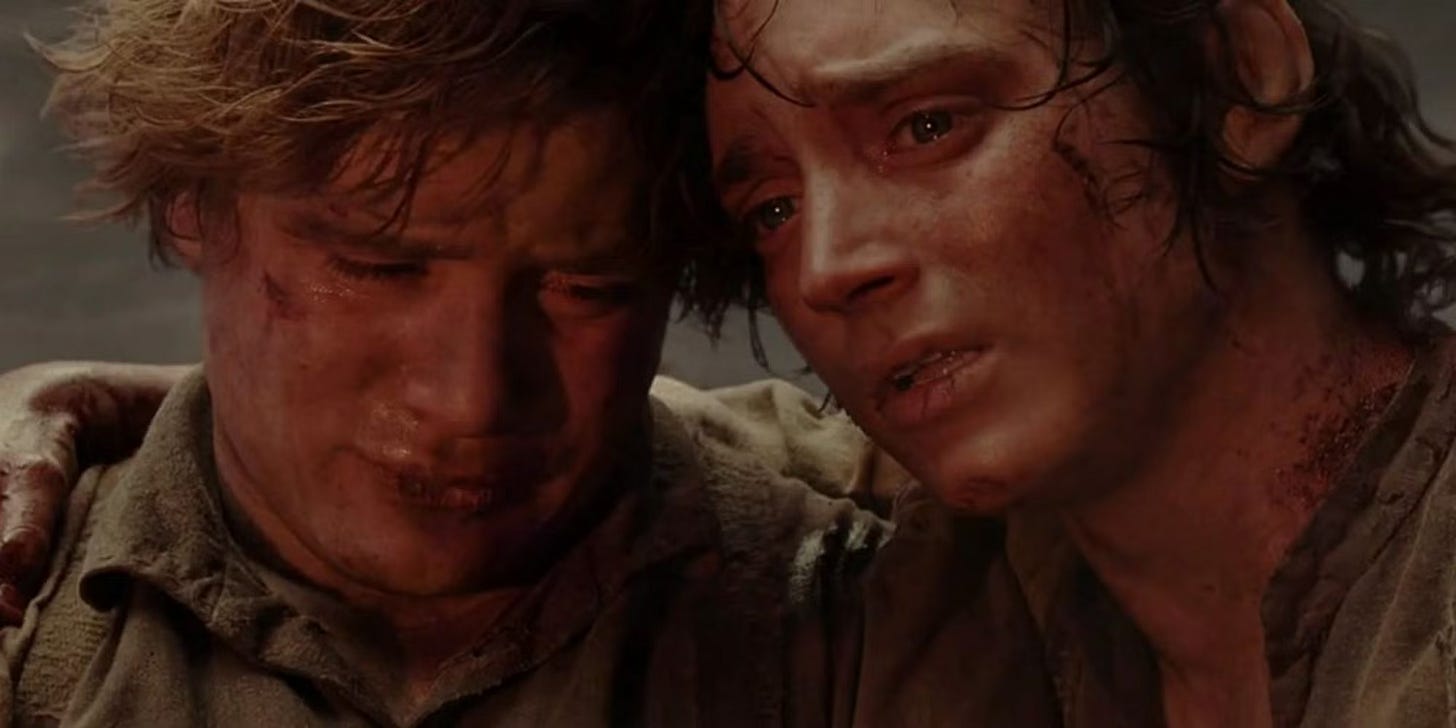
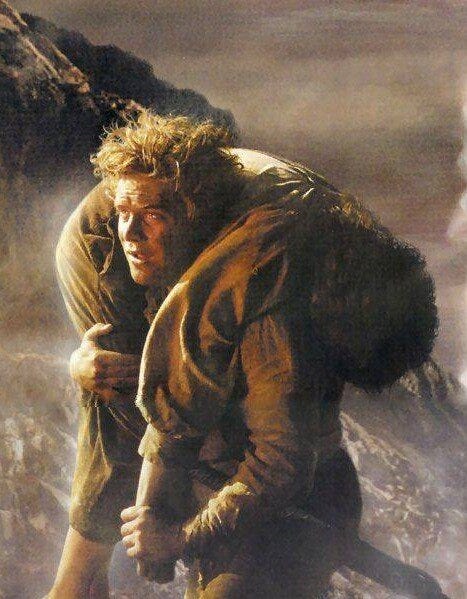
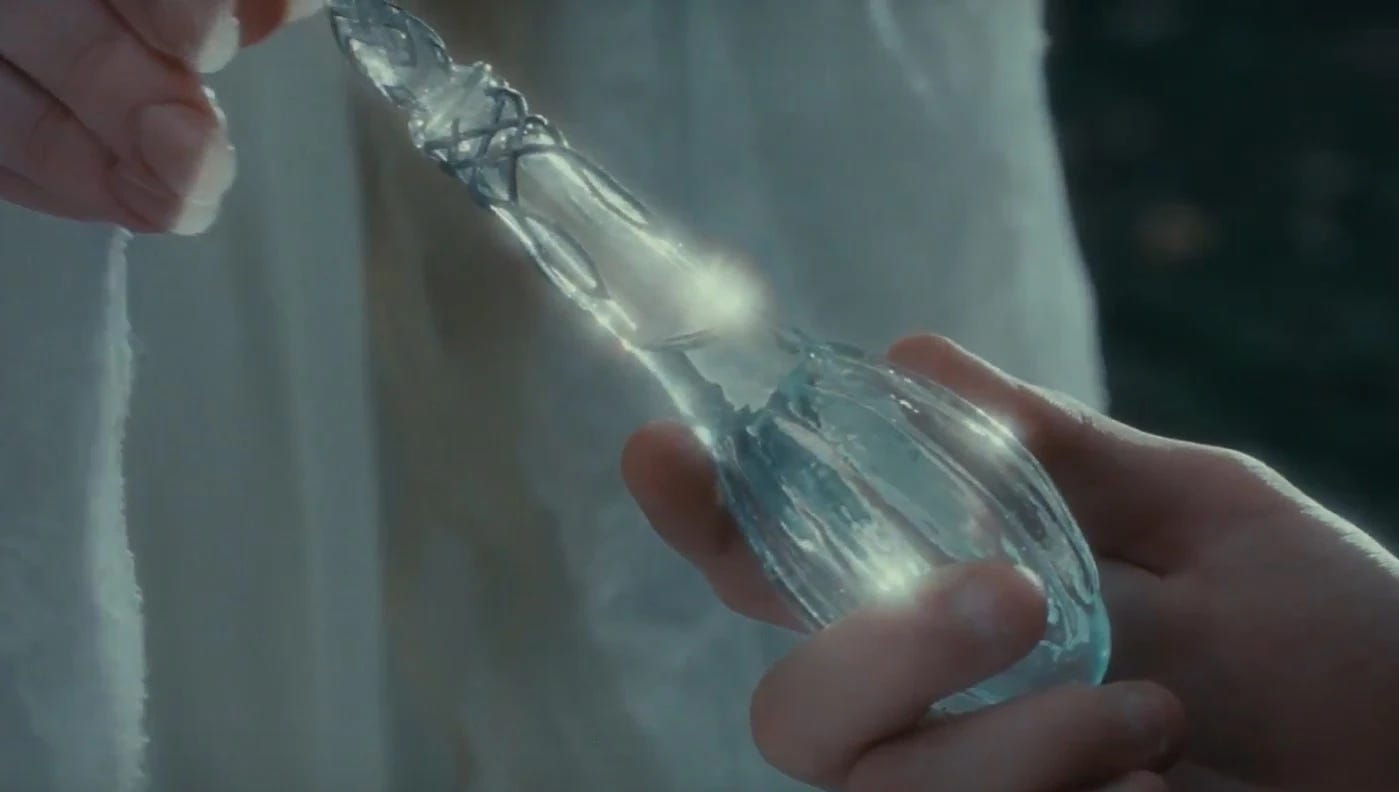
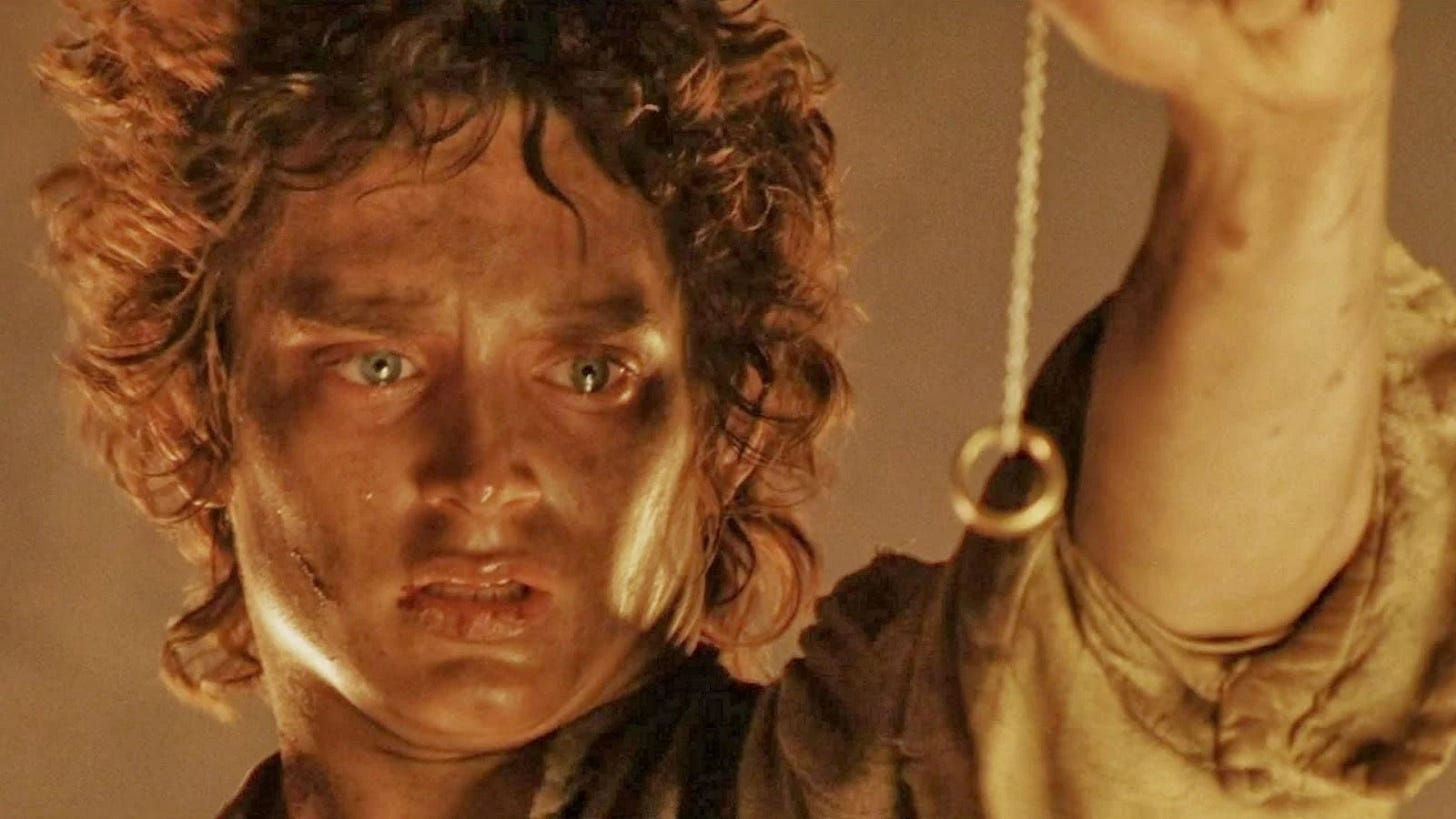
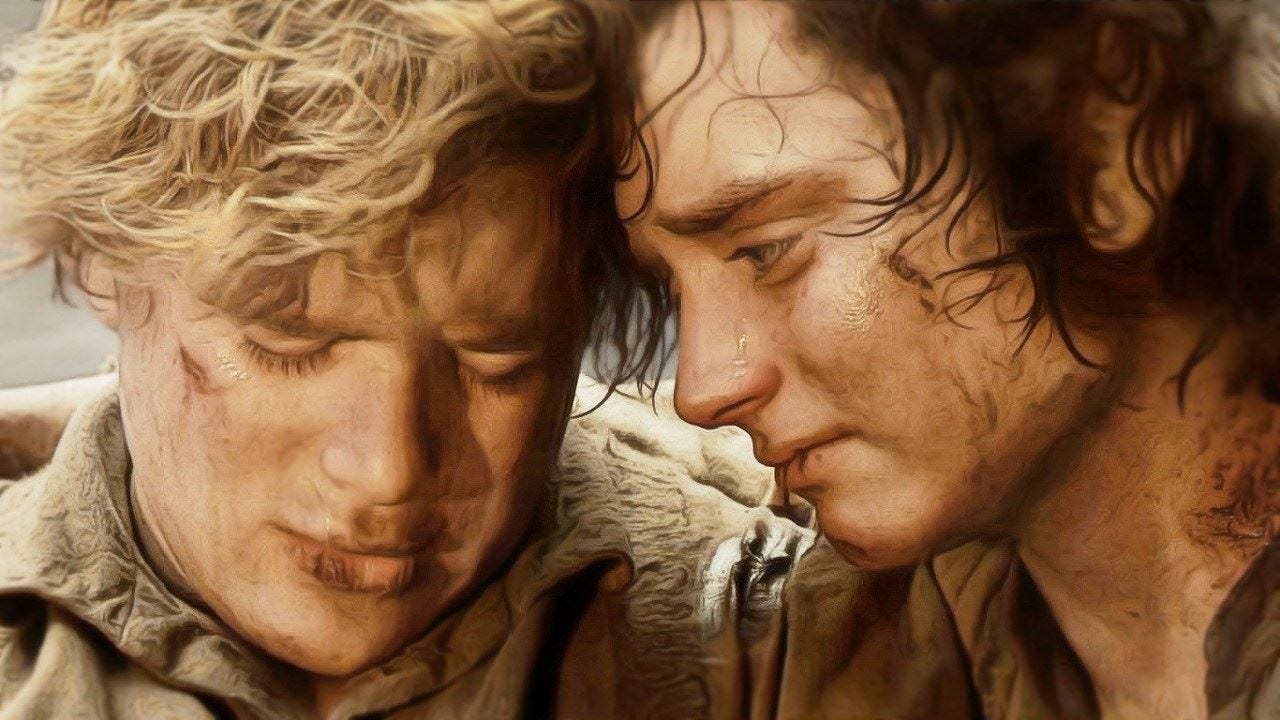

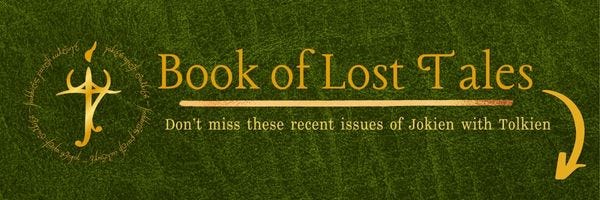

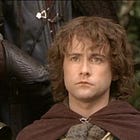

I have loved all of these posts! Thank you so much for taking the time to share them. We have "Hope without guarantees" while facing the battles of this life, because we do have one hope that is guaranteed: that the ultimate battle is won. Love how you worded it: "God will never abandon us, will turn all things together for our good—even our defeat—and one day will return and remake this world into something far more beautiful and wonderful than we can possibly imagine." This was encouraging in the truest sense—makes me feel more courageous!
Excellent series, I will return to read it often.